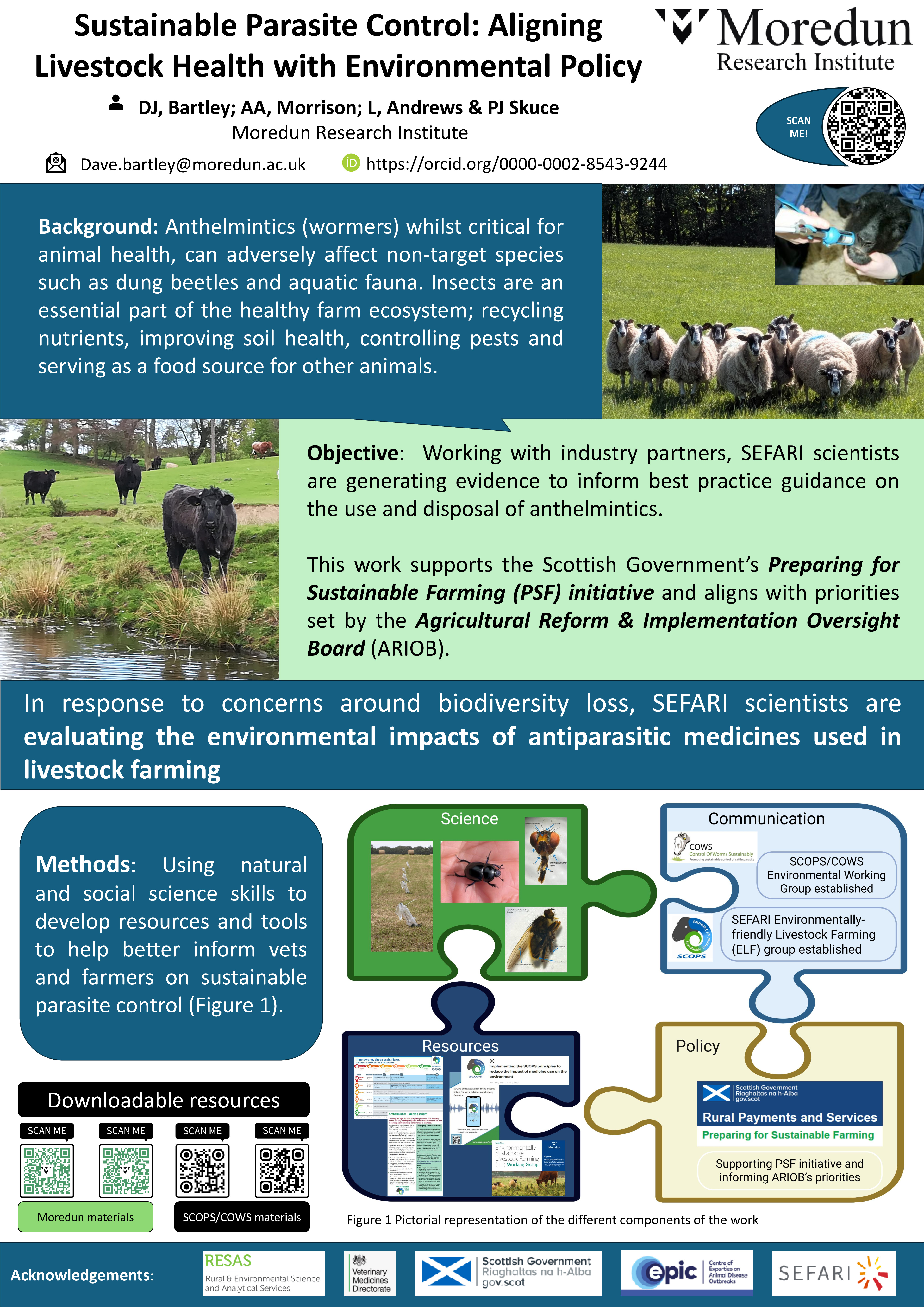Download
Description
In response to growing concerns about biodiversity loss in agriculture, SEFARI scientists are evaluating the environmental impacts of antiparasitic treatments used in UK livestock farming. These essential veterinary medicines, whilst critical for animal health and welfare, can adversely affect non-target species such as dung beetles, soil and aquatic fauna. Insects contribute to healthy farm ecosystems including nutrient cycling, soil health, pest suppression and serving as a food source for wildlife. Working in collaboration with the Veterinary Medicines Directorate and industry groups (SCOPS and COWS), SEFARI scientists are generating evidence to inform best practice guidance on the use and disposal of antiparasitics. This work supports the Scottish Government’s Preparing for Sustainable Farming (PSF) initiative and aligns with priorities set by the Agricultural Reform and Implementation Oversight Board (ARIOB). We have helped establish the SCOPS/COWS Environmental Working Groups and developed accessible resources and messaging to promote sustainable parasite control. The newly formed SEFARI Environmentally-friendly Livestock Farming (ELF) group is now shaping future research and policy, ensuring animal health strategies support environmental and regulatory goals.
